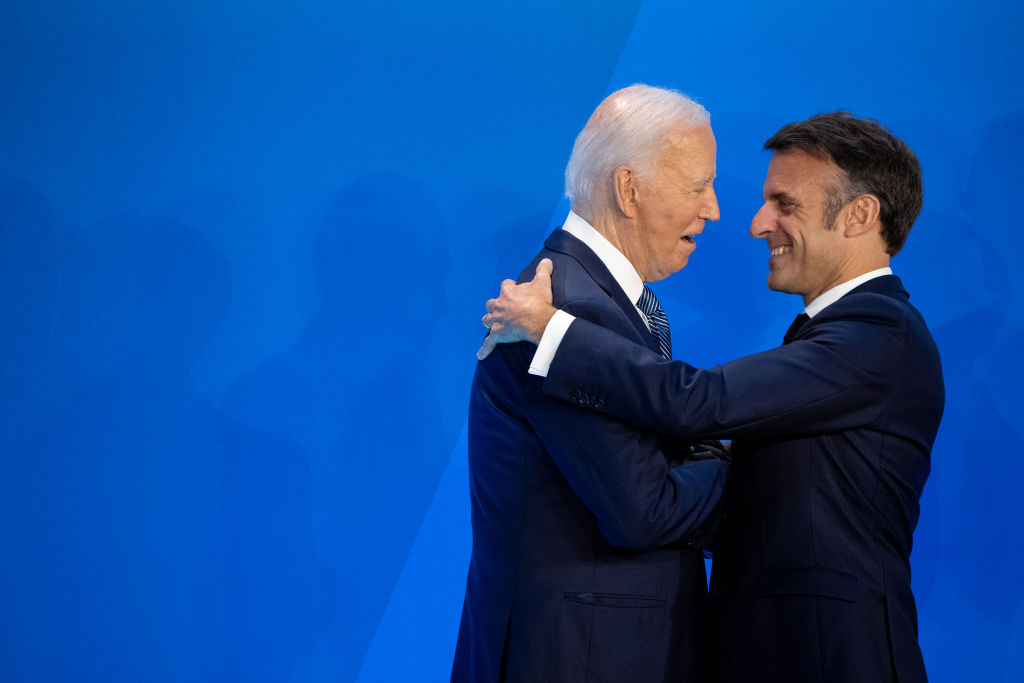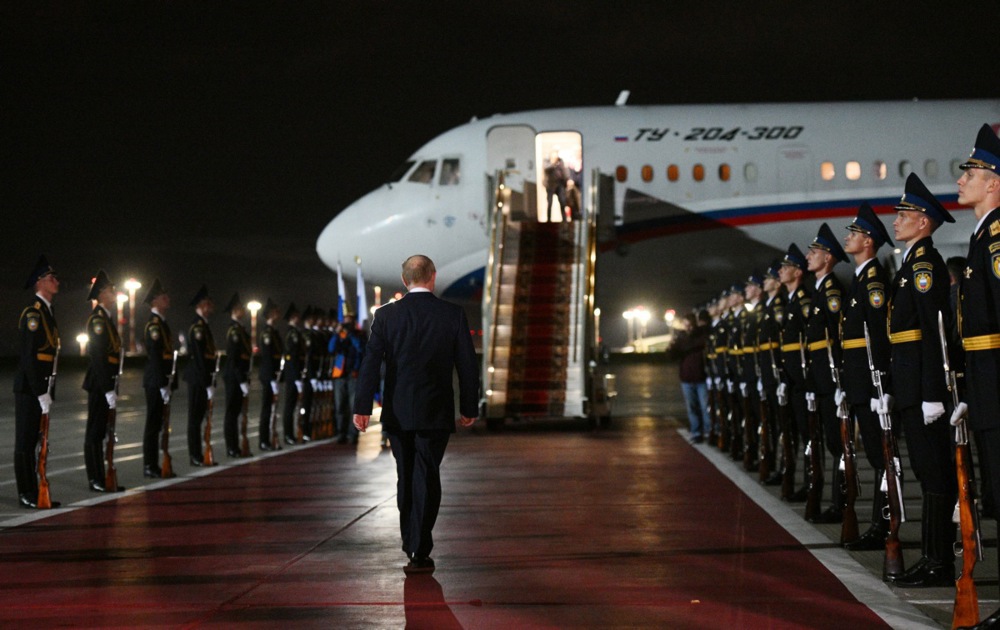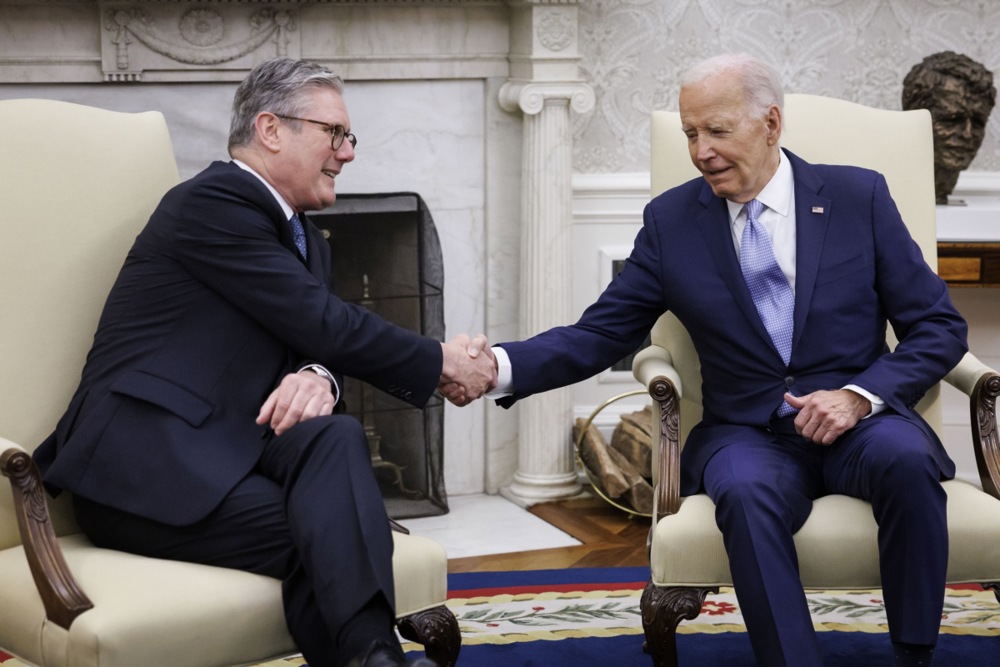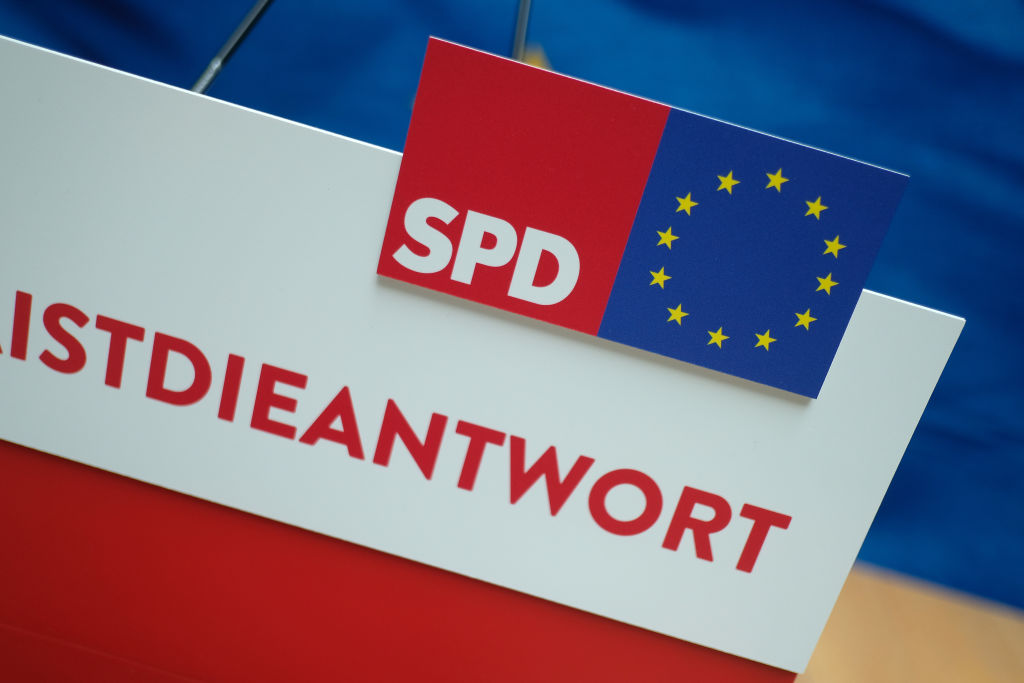Politicians in Germany have been left uneasy by a prisoner exchange spearheaded by US President Joe Biden in which a convicted Russian killer was released.
Vadim Krasikov was convicted by a German court of killing exiled Chechen partisan Zelimkhan Khangoshvili in 2019. The broad-daylight shooting in Berlin, which occurred just minutes from the Bundestag, is speculated by German authorities to have had the support of the Kremlin.
Having been sentenced to life, Krasikov was instead released back into Russian hands on August 2 as part of one of the largest East-West prisoner swaps since the fall of the Soviet Union, with the decision to hand over the hitman in exchange for political prisoners rubbing some German representatives up the wrong way.
“From a human perspective, I welcome the release of 16 political prisoners,” Bundestag MP for the Christian Democratic Union (CDU) Roderich Kiesewetter, who serves on the Foreign Affairs Committee, wrote online.
“However, Russia is a terrorist State that is now deliberately trying to establish hostage diplomacy and make it its business model.
“I think exchanging convicted murderers such as the Tiergarten murderer Vadim Krasikov is difficult because it could set a precedent and contradicts our constitutional principles and because it strengthens the terrorist state of Russia,” he added.
Kiesewetter did add that he understood the decision taken by the German Government to release the killer to facilitate the swap, although he said the country should now look to hit back at Russia in other ways.
That, he argued, could include sending additional weaponry to Ukraine.
“Today would be a good time to deliver the first Taurus cruise missiles to Ukraine,” he said.
“Anyone who thinks that negotiations can be held with a terrorist State like Russia is wrong. Russia will continue to spread terror, arbitrarily imprison, torture and kill people and try to blackmail us.”
An exchange involving twenty-four prisoners has taken place in Turkey – the first since the last major swap between the West and Russia in 2010 of 14 prisoners. A breakdown of who was on the list. ⬇️ https://t.co/pRzxmZ1yKK
— Brussels Signal (@brusselssignal) August 2, 2024
Others appeared to share the CDU politician’s misgivings but ultimately opted to take a more positive view of the affair.
“Sometimes, for reasons of humanity, you have to make a deal with the devil,” the Social Democrats’ MP Michael Roth said.
“I am very happy about the release of the political prisoners,” he continued. “Thank you to everyone who successfully negotiated behind the scenes.”
Greens representative Konstantin von Notz echoed those sentiments, agreeing the decision to release a convicted criminal in exchange for Western hostages raised “questions”.
“Handing over the convicted Tiergarten murderer to his employers in Russia is without a doubt a painful price to pay,” he said.
“Nevertheless, my joy today outweighs those who are now free with us.”
The survey published on July 22 was conducted among 1,001 party members. Just 33 per cent said they would support Scholz again as chancellor in the upcoming German general elections in 2025.https://t.co/uKeBI88Jxv
— Brussels Signal (@brusselssignal) July 22, 2024
The prisoner exchange, which involved 24 individuals being traded in total, has been seen as a PR coup for the outgoing Biden presidency.
Things have appeared more complicated regarding the reputational impact the deal is likely to have on German Chancellor Olaf Scholz.
Scholz is described by the Wall Street Journal (WSJ) as having been put under considerable pressure by the US to agree to the deal, with Biden administration officials especially keen to implement the exchange to free the newspaper’s own reporter Evan Gershkovich.
Gershkovich, who worked the Moscow beat for the WSJ, was jailed by the Kremlin last year over accusations of espionage.
The reporter’s mother, Ella Gershkovich, is described by the newspaper as playing a leading role in the campaign to return her son to the US, meeting up with Scholz briefly to pressure him into accepting some sort of prisoner exchange agreement.
“Nobody took the decision to deport a murderer sentenced to life imprisonment after only a few years in prison lightly,” the Chancellor said on August 2 in an attempt to justify his decision.
He claimed he was forced to take into account “the life of innocent people imprisoned in Russia and those wrongfully imprisoned for political reasons”, something that pushed him towards accepting the deal.
Working to protect German citizens abroad, as well as showing solidarity with the US, were also contributing factors in his final call.
Kamala Harris praises Biden in her first speech following his decision to withdraw from the 2024 presidential election.#kamalaharris2024 #joebiden2024 #USA
?? https://t.co/PSAwo9bYJa pic.twitter.com/T2uoXSnxsf
— Brussels Signal (@brusselssignal) July 23, 2024





